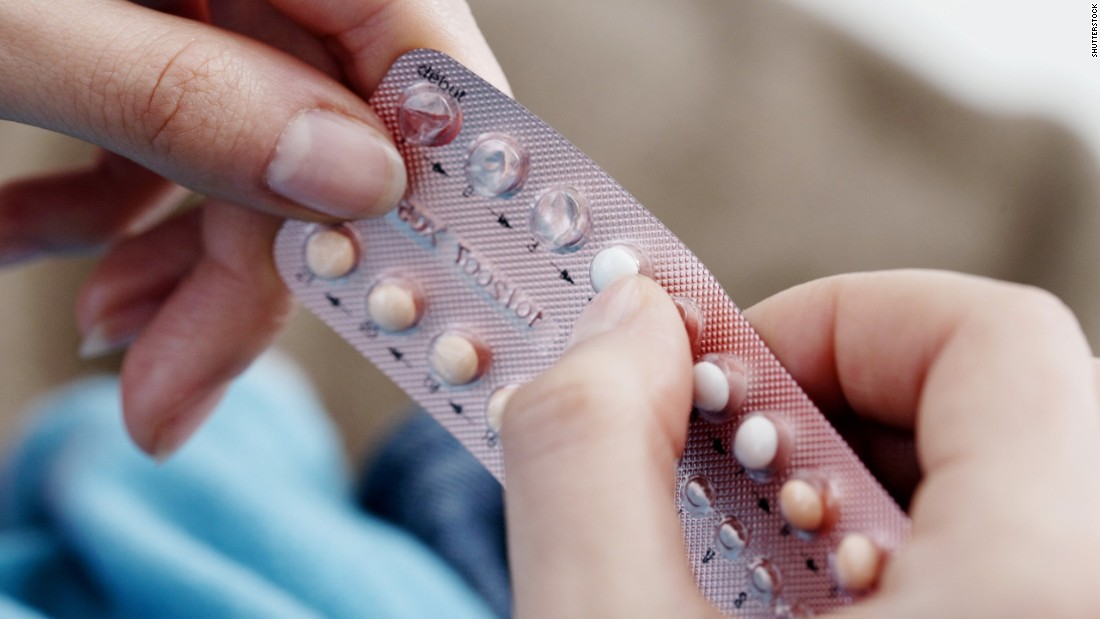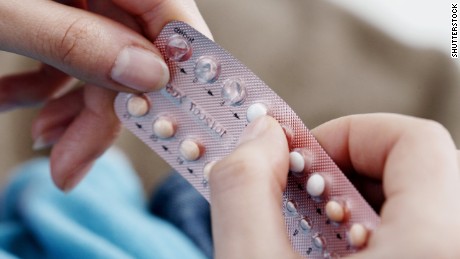
(CNN)Both men and women are responsible for pregnancy, yet the burden of preventing it often falls on one gender. Women can choose from a variety of options to control fertility while for generations, men have been limited to withdrawal, condoms and sterilization. But someday soon, a new method may allow men to shoulder a greater share of responsibility.
A new hormonal birth control shot for men effectively prevented pregnancy in female partners, a new study found.
The study, co-sponsored by the United Nations and published Thursday in the Journal of Clinical Endocrinology and Metabolism,tested the safety and effectiveness of a contraceptive shot in 320 healthy men in monogamous relationships with female partners. Conducted at health centers around the world, enrollment began on a rolling basis in September 2008. The men, who ranged in age from 18 to 45, underwent testing to ensure that they had a normal sperm count at the start.
Serious negative effects resulting from the shots included one case of depression and one experience of an abnormally fast and irregular heartbeat after the injections stopped. The researchers considered one intentional overdose of acetaminophen possibly related.
“It is possible that the fluctuations in the circulating progestin following bimonthly injections could haveresulted in the reported or observed mood swings, such as occurs in women, whether on a hormonal contraceptive or not,” Colvard speculated.
Overall, 20 men dropped out early due to side effects. A total of 1,491 adverse events were reported by participants, including injection site pain, muscle pain, increased libido and acne. The researchers say that nearly 39% of these symptoms — including one death by suicide — were unrelated to the shots.
However, due to side effects, particularly depression and other mood disorders, the researchers decided in March 2011 to stop the study earlier than planned, with the final participants completing in 2012.
“I immediately thought of the recent findings on female birth control,” Elisabeth Lloyd said of a study published last month in the journal JAMA Psychiatry. A faculty scholar at the Kinsey Institute, she is a professor of biology and an adjunct professor of philosophy at Indiana University Bloomington.
The study she refers to found an association between the use of hormonal birth control and depression. It looked at prescriptions filled during an 18-year period by more than 1 million women included in Denmark’s national registry.
According to the lead author, Dr. jvind Lidegaard of the University of Copenhagen, among women both with and without a psychiatric history who were using hormonal contraceptives, about 10% to 15% got a prescription for an antidepressant during a five-year period.
Annually, the risk of antidepressant use among the youngest group of women taking hormonal contraception amounts to between 2% and 3%. Two or three out of every 100 women between 15 and 19 years old who take hormonal contraceptives will become depressed over the course of a year. “Adolescents seemed more vulnerable to this risk than women 20 to 34 years old,” the researchers noted in their study.
Lidegaard said doctors need to tell women about the benefits and risks of hormonal contraceptive products when deciding which birth control to use.
Effects on fertility
After the men stopped receiving shots, most returned to fertility during a recovery period.
“The minimum recovery time was about 12 weeks after the last injection, and the average time was about 26 weeks,” said Colvard.
Still, there were problems. After 52 weeks in recovery, eight participants had not returned to fertility. The researchers continued to follow these men individually, and five eventually regained normal sperm counts over a longer period of time. One volunteer did not fully recover within four years, though he did “partially recover, so whether he is actually fertile is not known,” Colvard said.
“It shows that it’s a risk, a low-probability risk of it, and it’s not to be sneezed at as a risk of it, surely,” said Lloyd, who is unaffiliated with the new study.
Lloyd said, adding that this risk needs to be compared with those involved in hormonal birth control for women, such as potentially fatal strokes and blood clots.
“These risks of fertility damage are not fatal risks like the women endure with their birth control,” said Lloyd. “You have to compare what women are doing in terms of taking hormones with what men are doing in terms of taking hormones. Are they taking their life in their hands when they take the hormones? Women are. And that needs to be put right up in front when considering the risk.”
Colvard and his co-authors say more research is needed as they work to perfect their cocktail of hormonal contraceptives in an attempt to reduce the risk of side effects, including depression, increased sex drive and acne.
Despite the side effects of the male birth control shot, more than 75% of participants reported being willing to use this method of contraception at the conclusion of the study.
Cohen believes at least part of the reason for this is that they were getting testosterone.
Looking to the future
“Testosterone makes men feel pretty good,” Cohen said. “Testosterone is not a stimulant per se, but it is a steroid, and like a lot of steroids, it can give you a boost of energy. It can give you a boost of muscle mass. It can help with weight loss. It can help with mentation,” or mental activity.
Lloyd believes that if 75% of the men said they’d be interested in getting the shot if it were available, there’s real interest in the product. “That’s unbelievable. That’s fabulous. I’m very very impressed with that number,” she said.
Cohen, who says he he sees patients who face infertility or other hormonal problems, worries about the safety of this method. “Let’s just say, when I read it, I was highly alarmed,” he said, explaining that putting men on testosterone who have normal testosterone levels is not safe and amounts to a violation of the “ethical clinical practice guidelines.”
However, Lloyd thinks this product is a long time coming.
“It’s been a long time since people have been talking about male birth control. This goes back to the 1950s at least.” When scientists first began talking about hormonal birth control for women, they also discussed the same for men, explained Lloyd, but hormonal contraceptives for men were not acted on or investigated.
Cohen questions the general safety of hormonal birth control — for anyone.
“We’re talking about young people, and the scary thing is messing around with young people’s hormones, and that can be detrimental for the rest of their life, right?” Cohen said. “You take an 18-year-old girl or a 20-year-old boy and mess around with their hormones, you’ve really altered possibly how they go through their life.
“If anything, this may wake us up to finding out better hormonal contraceptives for women, right? Because certainly, I know that a lot of young women don’t get the type of counseling that maybe they deserve when it comes to contraception,” Cohen said. “Just a (prescription) and a visit to Duane Reade is all they get, and that may not be enough.”
Read more here: http://edition.cnn.com/




